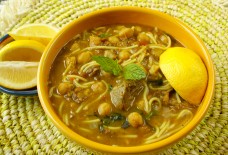Tunisia Ranks Top of Arab Countries in Life Quality
Tunisia has been ranked, for the second consecutive year, on the top of Arab countries in matters of quality of life by the “International Living Magazine” in its rating involving 194 countries.
With a score of 59 points out of 100 and an improvement of three points compared with last year’s ranking, Tunisia was particularly well rated in the risk and safety area (86/100), health (73/100), climate (85/100) and cost of living (63/100).
It comes ahead of Jordan (55 points), Kuwait (55 points), Lebanon (54 points), Morocco (54 points) and Bahrain (54 points).
The ranking is established on the basis of an index consisting of a set of scores grounded on qualitative indicators: cost of living, economy, environment, culture, leisure, freedom, health, infrastructures, risk and safety and climate. For each of these criteria, each country is rated out of 100.
The quality of life index (100) is divided into 15% for cost of living, 10% for culture and leisure (rate of literacy, rate of reading press, visiting museum), 15% for the economy (interest rate, GDP, GDP growth rate, per capita income, inflation rate and GNP per inhabitant), 10% for environment (population density per square kilometre, population growth rate, greenhouse emissions per inhabitant and the percentage of the total protected area), 10% for freedom (degree of political freedom), 10% for infrastructures (length of railways, paved roads, waterways, number of airports, vehicles, telephones, Internet services providers and mobile phones per inhabitant), 10% for risk and safety, 10% for climate (average annual rainfall, average temperature and risk of natural disasters).
Tunisia can now claim to have lowered the poverty rate to 3.8%, while achieving a growth rate of 3% in 2009 in a generalised global crisis situation.
The country’s ambition for 2010 is to improve the per-capita income and stabilise the unemployment rate by targeting a growth rate of 4% of GDP at constant prices, so as to create 70,000 new permanent jobs and preserve macro-economic balances. Similarly, the inflation rate was reduced from 5% in 2008 to 3.5% in 2009.
Additionally, social indicators show a significant improvement. The per capita income rose from 960 dinars in 1986 to 4,847 dinars in 2008. Life expectancy at birth increased from 68.9 years in 1987 to 74.6 years in 2008.
The literacy rate was boosted from 90% in 1991 to 99% in 2008. Today, 95% of citizens benefit of social welfare.
In 2010, 69% of management expenditure will be dedicated to social sectors and 150 million dinars will be earmarked to infrastructure, public transport and hydrocarbons.
Tunisia’s development approach is marked by a boom in the new information and communication technologies, an all-around development of basic infrastructure and accelerated economic reforms.
In the latest edition of the ranking established for 30 years by International Living, France was ranked first, for the fifth consecutive year, ahead of Australia (2nd) which gained three places compared to 2009, Switzerland (3rd), Germany (4th) and New Zealand (5th). The United States is now seventh dropping four places.
The “International Living” magazine focuses on retirees who aspire to a better living environment with an appropriate cost.
This ranking is carried out in the month of January of each year to identify, simply, most pleasant places.
Global Arab Network
TAP


